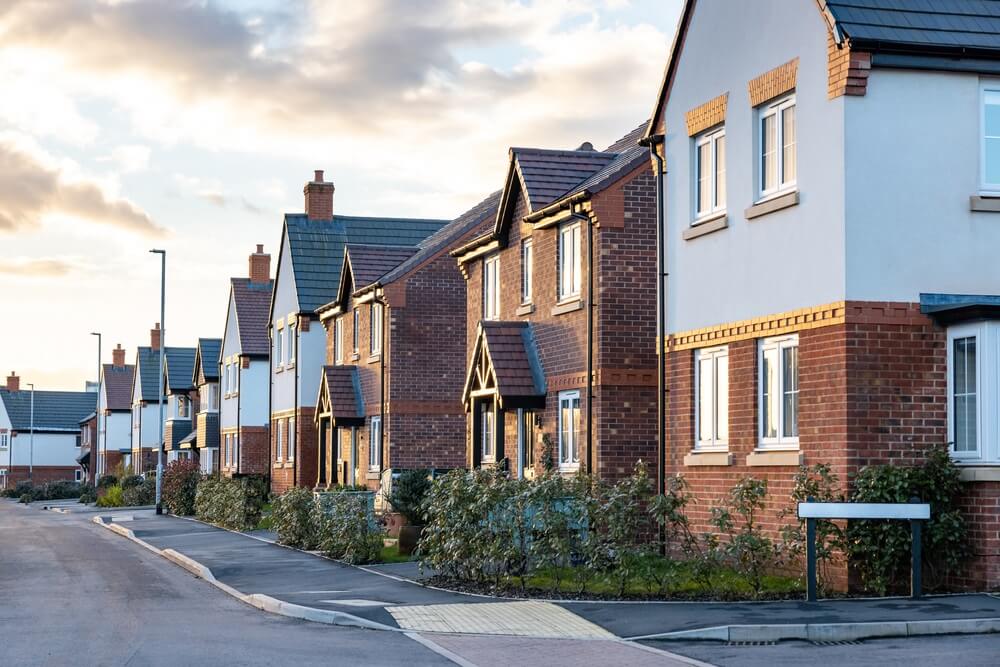From saving for a deposit to completing on your purchase and moving into your new home, here’s how the whole first-time homebuying process works – from start to finish
 Buying your first home is a monumental step. While the journey may seem daunting, understanding the essential steps and considerations can simplify the process and empower you to make informed decisions.
Buying your first home is a monumental step. While the journey may seem daunting, understanding the essential steps and considerations can simplify the process and empower you to make informed decisions.
Assessing your financial situation
Before you take the first leap into the property market, it’s a good idea to start the process by reviewing your current financial situation. There are three key areas that we would recommend focusing your assessment on:
1. Evaluate your savings
Since both the deposit and legal costs will be substantial upfront payments, it will be vital to understand your financial capacity to set your budget.
2. Review spending habits
Take a close look at your spending habits and financial commitments. This can help identify areas for reduction and increase in savings. Lenders often scrutinise spending activity and will typically request to view your bank statements, so ensure your accounts reflect responsible financial management.
3. Check your credit score
A credit score has the ability to significantly impact mortgage eligibility and interest rates. Obtain a copy of your credit report and address any errors or discrepancies.
Government schemes for first-time buyers
For some, buying their first home can seem out of reach. However, the government have a variety of schemes available to assist people on their journey to becoming a first-time homeowner. Here are just some of them:
-
Shared Ownership
This provides you with the option to purchase a share of a house and pay rent on the remaining portion. Shared ownership offers the opportunity to gradually increase your ownership share over time, intending to achieve complete homeownership.
-
First Homes Scheme
This program offers new-build homes at a discount of at least 30% below market value. These discounted properties prioritise local residents and key workers, aiming to address housing affordability concerns in local communities.
Understanding mortgage options
Understanding mortgage options is crucial yet daunting for first-time buyers. There are a variety of options available, each with distinct advantages.
-
Fixed rate
A fixed-rate mortgage offers stability by locking in an interest rate for a set period, usually two, three, or five years.
This ensures consistent monthly payments, simplifying budgeting and appealing to those seeking long-term predictability.
-
Tracker
Tracker mortgages fluctuate with interest rates, potentially altering monthly payments. The benefit is that they initially offer competitive rates.
However, this mortgage is often suited for those with shorter-term homeownership plans or higher risk tolerance, as payments may increase if interest rates rise.
-
Offset
Offset mortgages connect savings to the mortgage, reducing interest by offsetting the balance. Though savings don’t earn interest, they offset an equivalent mortgage balance, cutting interest payments. Family offset options use relatives’ savings to offset mortgage debt.
Choosing a mortgage that suits your needs and financial goals is crucial, especially for first-time buyers. With a focus on stability and risk management, many first-time buyers often lean towards fixed-rate mortgages.
Conveyancing and surveys
Once you find your first property and accept your offer, the following steps include conveyancing and surveys.
A conveyancer will handle the legal process of transferring your property’s ownership. You should instruct a conveyancer to handle the transfer correctly and efficiently.
Secondly, we recommend that you arrange a survey to assess the property’s condition. Although not a legal requirement, a surveyor will assess various aspects of the property, identifying potential issues or areas requiring attention.
Prioritizing conveyancing and surveys will mitigate risks and ensure a smooth transaction.
Closing on your first property
As you approach the final stages of your home-buying journey, the closing process begins, marking the completion of essential tasks to finalise the purchase and assume ownership of the property.
You should coordinate closely with your lender, estate agent, and conveyancing solicitor to ensure all requirements are met within the designated timeframe.
Once this is done and the payments are completed, you’ll receive the keys to your new home, officially concluding the transaction.
Additional costs when buying a property
As a first-time property buyer, it’s vital that you are aware of the potential additional costs beyond the property’s purchase price. Here are some common ones to consider:
- Legal fees
- Moving costs
- Stamp Duty
- Survey
Factoring in these costs helps ensure a smooth transition into homeownership without unexpected financial surprises.
The home-buying process requires careful planning, financial preparation, and informed decision-making. By following these steps and seeking guidance where necessary, you can embark on your homeownership journey with confidence and peace of mind.
If you’re looking to buy a house and need to sell your current house quickly, We Buy Any House will help you sell your house in as little as three days.














